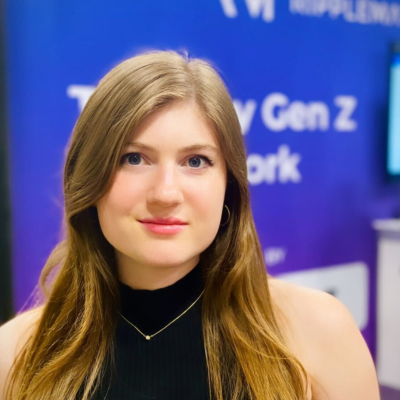
Retaining Gen Z Hires: Why You Need to Embrace Flexible Work Arrangements and Promote Quickly
It’s one thing to get top talent in the door in this competitive market, but it’s another thing to have the policies and culture in place to keep them happy at your company for the long-term. One way to retain candidates is to appeal to how they want to work — such as whether they prefer hybrid, fully in-person, or fully remote work settings — as well as how they hope to be rewarded at work and grow within a company. If hires are not satisfied with their work schedules, and don’t see or experience the opportunity for upwards ability, they will be tempted to look elsewhere. But what exactly do today’s interns or full-time job seekers want? And what are their expectations in the workplace in terms of tenure and promotions?
In March 2022, we surveyed nearly 5,000 college juniors and seniors to uncover the truth about what Gen Z is experiencing in the workforce. As part of the robust report of our findings, “The State of the Gen Z Job Search,” we included data on the factors involved in retaining Gen Z talent.
Read on for some high-level takeaways to better understand early career talent, and download the full report for more data and analysis.
A majority of Gen Z candidates plan to stay at one company for at least 2.5 years.
You may have heard the narrative that Gen Z is known for ‘job hopping’ or moving quickly from one opportunity to another. But is this a true characteristic of early career talent, and is your company just a short-lived stepping stone for these candidates?
Not quite. From our survey, we found that both internship and full-time job candidates intend to have a longer tenure at their companies than the general public might have thought. Looking at internship candidates, only 13.1% said that they would be looking for another opportunity after just one year, while a larger chunk of internship candidates envision themselves at one organization for 3.5 years or more (29.2%). We also found that 27% of internship candidates imagine that they will stick to one company for 1.5-2 years, and 29.9% think they will stay at one group for 2.5-3 years.
The data shows a similar breakdown for full-time job candidates pursuing entry-level roles, though fewer full-time candidates envision themselves at one company for just a year (10.1%). We found that almost the same share of full-time candidates think they will remain at one company for 1.5-2 years (28.9%) than will stay loyal to one group for 3.5 years or more (28.7%). The largest share of full-time candidates (32.2%) envision themselves in the same role for 2.5-3 years. With this in mind, you should help candidates picture what their career growth in your company might look like within the next few years.
Gen Z prefers hybrid work options where they are in control.
Now that you know Gen Z intends to invest in their next employer, how can you ensure that your hires do so at your company? One way is to allow Gen Z control over their own schedules.
Through our survey we found that following the isolation of the pandemic, Gen Z does want the opportunity to see their coworkers in-person — they just prefer to choose when that’s the case. We found that while most candidates this year are in a fully in-person or hybrid setting, candidates prefer a hybrid model in which they can decide when they want to work in person or from their at-home office. Specifically, our data shows that 53.8% of internship candidates and 56.1% of full-time candidates prefer a hybrid work model, and that both groups prefer full-in person work to fully remote opportunities.
Candidates are far more likely to remain at your company when they have flexibility over where they work. You should ensure that your company’s policies are in line with Gen Z preferences.
Gen Z expects to be promoted within their first year.
When evaluating your company’s policies around nurturing employees, it’s also helpful to understand what Gen Z expects when it comes to professional growth within your company. And we found that those expectations are high.
In fact, our data shows that most Gen Z candidates expect to be promoted in one year or less (78.1% of internship candidates and 72.2% of full-time candidates). The second largest share of respondents said they expect to be promoted after one and half years at their company (12.8% of internship candidates and 13.9% of full-time candidates), followed by 7.1% of internship candidates and 11.9% of full-time candidates who expect to move up after two years. Just 2% of all candidates expect two and a half years to go without a promotion. Overall, our findings show that candidates expect to be recognized for their efforts within a year, and hope to advance rather quickly. It would be wise to help candidates feel that they are progressing at your company by creating milestones they can work toward throughout the year.
It’s a tough market, and hires are constantly being targeted with exciting and new opportunities at similar companies. To keep your early career talent in house, you should establish yourself as an advocate for flexible work environments and be sure to help candidates and hires picture what their career growth might look like at your company within the next few years.
To uncover more about today’s Gen Z candidate, download our full report. Because armed with the data from our findings, you will be ready to take on the competitive labor maker confident that you understand the expectations and behavior of Gen Z.





